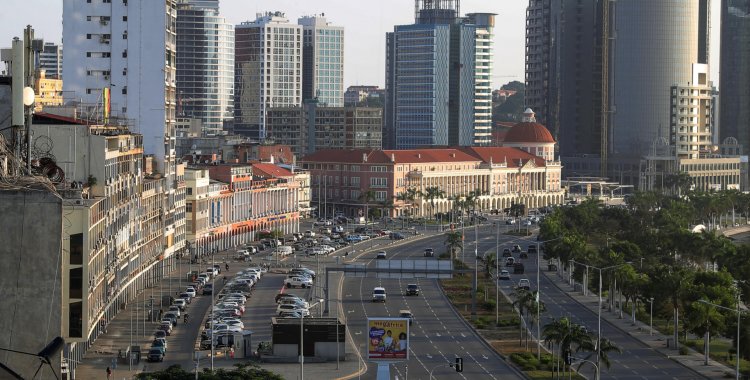In the first assessment by the executive board of the International Monetary Fund (IMF) after the financial assistance program, released on Tuesday night, the downward revision of some indicators stands out, namely GDP, which is expected to slow down to 0.9 percent this year, compared to forecasts of 3.5 percent put forward in February.
The decline in the oil sector, the main pillar of the national economy, contributed to this downward revision, with a decline of 6.1 percent (a growth of 2 percent was expected in the February forecasts), while the advance of the non-oil sector to 3.4 percent (it was 4.3 percent in February) cannot compensate.
The IMF Executive Board highlights that the successful reforms associated with oil prices supported Angola's economic recovery between 2021-22, but the decline in oil production (from 1205 million barrels/day forecast in February to 1026 million barrels/day) brings "significant challenges".
The decline in the oil sector is justified by temporary maintenance operations that lasted between the end of 2022 and the first half of this year.
Thus, the IMF predicts a slowdown in growth to 0.9 percent in 2023, which should stabilize at around 3.4 percent in the medium term, supported by structural reforms and the economic diversification agenda undertaken by the authorities.
Inflation is expected to rise temporarily in 2023/24 due to rising energy prices related to the reform of fuel subsidies, and to decline thereafter, adds the international institution.
The decline in oil prices and production in the first half of 2023 was reflected in the decrease in exports and oil revenues, with an impact on the fiscal and external sectors, and in the significant depreciation of exchange rates in June.
Following the exchange rate devaluation and partial removal of fuel subsidies, inflation increased in June, to 11.3 percent (from 10.6 percent in May) for the first time in 15 consecutive months, and the National Bank of Angola responded by tightening liquidity conditions.
The IMF expects a moderate fiscal adjustment in 2023, and a more pronounced one in 2024 due to the cut in fuel subsidies.
Although the short-term fiscal outlook has worsened, the government should achieve its medium-term fiscal targets if it fully implements the reform of fuel subsidies, considers the IMF, which however points out the risks associated with a greater than expected drop in prices global oil markets and the reduction in oil production.
Despite the high risks, "Angola's capacity to repay the Fund is adequate" and payments will increase in the medium term, reaching a peak in 2026 and the repayment capacity is "manageable", even in a scenario of "significant and prolonged shock" .
Measures to mitigate this shock, including allowing the exchange rate to act as a buffer and rationalizing some expenditure, would be important in such a scenario, the IMF advises.
The financial institution also recommends that the government act quickly to reverse the "major fiscal slippage of 2022", implementing the fuel reform and adopting fiscal policy measures to mobilize non-oil revenues, as well as deepening the structural fiscal agenda.
The authorities should also adopt fiscal policy measures to mobilize non-oil domestic revenues and make further progress on the fiscal structural agenda, including the management of finances and public investment.







